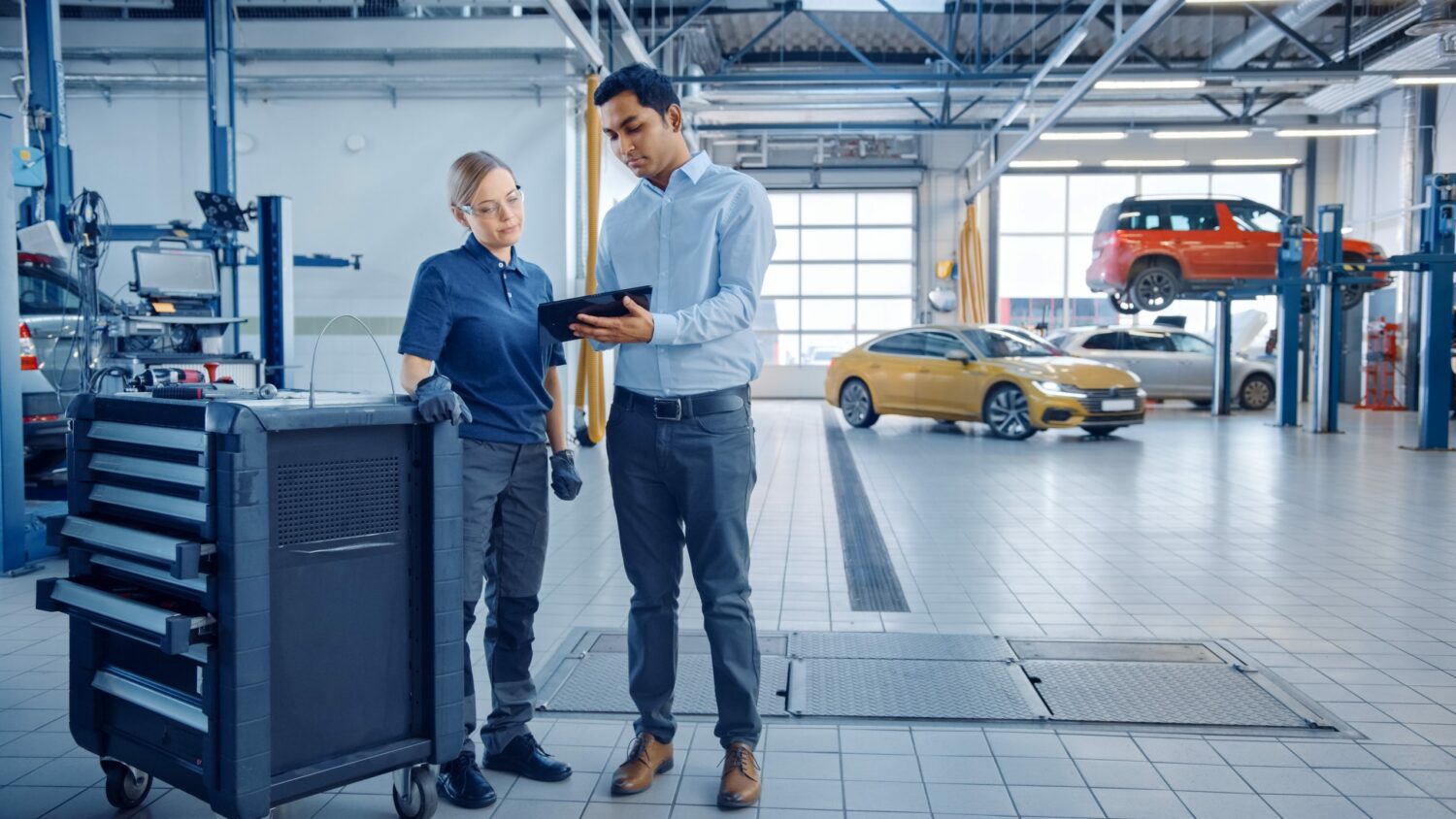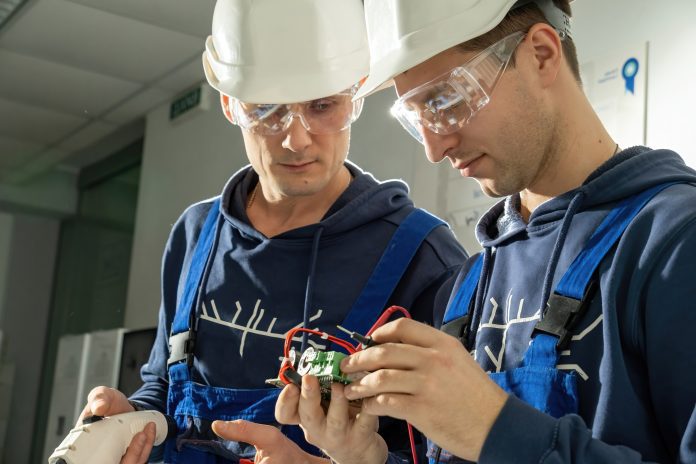A 2017 article in Automotive News undoubtedly caused indigestion among franchised dealer executives by foretelling how EVs would cause fixed operations to drop. In truth, it’s still too early to tell the full extent of this transition, as electric cars represent a small portion of new vehicle sales (4.6% in 2022).
What EVs do and don’t take away from service departments
Yet, before the EV trickle turns into a downpour is an excellent time to take stock of your fixed operations and what the future might entail. To begin with, let’s look at what EVs do away with:
- Internal combustion engines (and accompanying components)
- Conventional transmissions
- Exhaust systems
Asses your fixed ops revenues to determine how much reliance your business has on these components. Simply put, this is your risk exposure. If the lifeblood of your service department is oil changes (which is doubtful), then it’s time for a “Hello, Houston? We’ve got a problem.” moment.
On the other hand, if the bulk of your dealership’s fixed ops revenue comes from suspensions, brakes, tires, and electrical systems, then you can breathe easy (or easier); EVs have these things, too.
What EVs bring to fixed operations departments
In fact, there are opportunities for additional service revenues that never existed before.
Battery packs: Like all power cells, the main EV battery doesn’t last forever. That means a need for replacements, which isn’t going to happen at Pep Boys or Meineke. These procedures are still in their infancy, but swapping out entire EV battery packs or subcomponents will be a way of the future.
Tires: Due to extra weight, EVs chew up tires faster than their ICE-powered counterparts. And with proper education (see below), EV owners should know that they can’t just use ordinary tires. This opens up more revenue potential.
However the fixed operations revenue scenario plays out, there are measures to take to support a service department more reliant on electric vehicles.
 |
Fixed operations: Preparing for an EV future
Turning doubts about an EV future into more of a sure thing involves fully embracing where the industry is headed. Half-hearted measures yield half-hearted results, which can put your service department in a bind as ICE vehicles become less prominent.
Being proactive involves a multi-step approach.
Consumer Education
Making EV owners think of your fixed operations department starts early, more so than what you’re probably doing now. Some customers may be under the false impression that EVs are maintenance-free, so you must dispel that myth from day one. That means being enlightening about EV ownership, not discouraging.
This message could be integrated into sales efforts as well as during vehicle delivery. The idea is for your dealership to come across as an EV expert so customers walk away thinking, “they really know their stuff.”
Other ideas include first-time EV buyers’ seminars (in-person or online) and a series of EV FYIs on social media.
Enhanced Training
Take advantage of every minute of OEM EV-related training for your technicians. Such efforts will put your service department at a significant advantage over independent shops that don’t have access to these types of resources. It’s another way of establishing your dealership’s EV expertise.
Think of it this way, people with Apple computers and phones can get their electronics repaired anywhere, yet they flock to the Genius Bar for support. There’s no charge to the customer for warranty-related issues, but customers pay for non-warranty repairs. Why can’t your fixed operations department have an EV desk?
EV Resources
Demonstrating your dealership’s EV mastery includes providing related resources to prospects and customers. Information about tax credits, charger installation, utility rebates, and other helpful tools should be readily available.
Meanwhile, even something as simple as “EV Parking” signs demonstrates you welcome the future. This approach can be further enhanced by installing charging stations in a noticeable location (chargers tucked away in an obscure area are seldom seen by the public.)
Did you enjoy this article? Please share your thoughts, comments, or questions regarding this topic by connecting with us at newsroom@cbtnews.com.
Be sure to follow us on Facebook, LinkedIn, and TikTok to stay up to date.
While you’re here, don’t forget to subscribe to our email newsletter for all the latest auto industry news from CBT News.




